Robotics is one of the great technological revolutions of our century, with fundamental implications for a wide range of different industries.
Industrial mass production is no longer conceivable without robotics and automation. The trend in modern manufacturing is towards individualized products, tailored to the customer, with an exploding variety of variants and much shorter product life-cycles. This, in order to satisfy the market demand of a flexible and customizable industrial production. In this context, the classic way of conceiving industrial automation, which is mainly focused on purely automated or manual forms of production, is clearly reaching its limits.
Nowadays, robots and autonomous systems, partly in direct human-robot cooperation, are moving into the production of smaller batch sizes and can thus create a decisive competitive advantage in all industries. This flexibilisation also includes opportunities to optimize energy and material flows for resource-efficient production.
In our view, a modern manufactory or Factory of the Future needs a broad range of digital production technologies, robot systems, and applications for flexible and networked manufacturing processes effectively integrated in different production scenarios. One focus is on the realization of robust robot-supported manufacturing processes using digitization approaches and industry 4.0. This will make factory applications in particular more efficient, more cost-effective, safer, and more resource-conserving. More in details, a competitive Factory of the Future has to pursue the following objectives:
TOPICS OF INTEREST

We welcome researchers in the field to submit papers to be presented as posters. Submitted manuscripts should be between 2 and 4 pages, formatted according to IROS standards using the Paper Template downloadable on the IEEE IROS 2019 website (two-column format). Submission of videos accompanying the papers is always encouraged.
For video submissions, we require a video no longer than 3 minutes formatted according to IROS standards and an extended abstract (1 to 2 pages using IROS 2019 Paper Template) describing the results in the video. Authors of accepted papers will present their work during the poster sessions.
Please submit your contributions via e-mail to Matteo Saveriano and Roman Weitschat before September 15. Papers and videos will be selected based on their originality, relevance to the workshop topics, contributions, technical clarity, and presentation. Accepted papers and videos require that at least one of the authors register to the workshop. Accepted papers and videos will not appear in the conference proceedings.
- Submission deadline for papers and videos: 15 September, 2019
- Notification of acceptance: 01 October, 2019
Program & Schedule
Time |
Speaker |
Organization |
Status |
|---|---|---|---|
| 09:00 | Opening | Organizers | |
| 09:10 | Alin Albu-Schäffer | DLR and TUM | |
| 09:50 | George G.Q. Huang | The University of Hong Kong | |
| 10:30 | Teaser presentations (3-5 min.), poster session, and coffee break | ||
| 11:00 | Norbert Krüger | University of Southern Denmark | |
| 11:40 | Francesco Ferro | PAL Robotics | |
| 12:20 | Markus Rickert | FORTISS | |
| 13:00 | Lunch break | ||
| 14:30 | Sylvain Calinon | IDIAP | |
| 15:10 | Aleš Ude | Jožef Stefan Institute | |
| 15:50 | Teaser presentations (3-5 min.), poster session, and coffee break | ||
| 16:30 | Andrea Zanchettin | Politecnico di Milano | |
| 17:10 | Pietro Falco | ABB Corporate Research | |
| 17:50 | Round Table Discussion | ||
| 18:30 | End | ||
INVITED SPEAKERS









Universität Innsbruck
Innrain 52, 6020 Innsbruck, Austria
https://iis.uibk.ac.at/people/saveriano

Institute of Robotics and Mechatronics
German Aerospace Center (DLR)
Münchener Straße 20, 82234, Weßling, Germany

